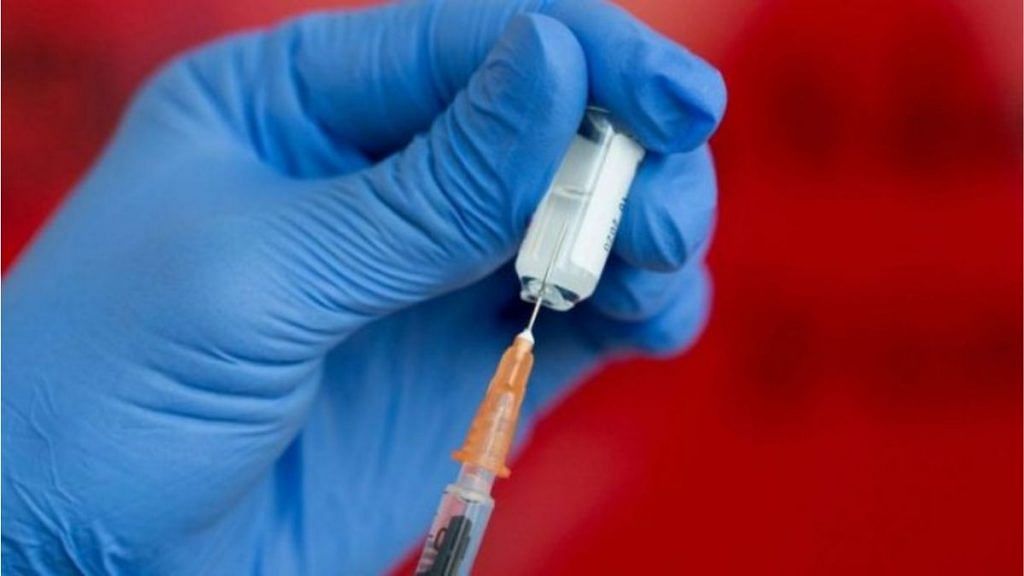New Delhi: Prime Minister Narendra Modi Saturday announced that frontline workers, people with comorbidities, and those above 60 years of age would be eligible for a booster dose of the Covid-19 vaccine from 10 January.
He also said that vaccination for children aged between 15 and 18 would begin from 3 January. ICMR and Bharat Biotech’s Covaxin has now been given emergency-use authorisation for children above 12 years of age.
In his address to the nation Saturday night, the PM said the decision had been taken in consultation with scientific advisers.
The decision comes amid rising demand for booster doses, as emerging coronavirus variants such as Omicron drive fears of a fresh surge.
Several studies, including some by Indian government researchers, have indicated that the protection induced by vaccines wanes after a few months, and that coronavirus variants such as Delta and Omicron reduce the vaccines’ efficacy.
Meanwhile, there were reports suggesting that healthcare workers had started taking booster doses of the vaccine on the sly amid fears of the spread of the new Omicron variant.
However, at health ministry briefings, officials have insisted week after week that India would focus on vaccinating the entire population with two doses before introducing booster doses.
Also read: Pfizer shots, prior infection could protect better against Omicron, South African scientists say
Booster doses recommended
Earlier this month, INSACOG — a network of genome sequencing labs monitoring variants in India — had said in its bulletin that those over 40, especially those at high risk of exposure, should receive booster shots.
But within two days, the body took a U-turn, and said that its earlier statement “was not a recommendation or suggestion for booster dose in the national immunisation program”.
Similarly, in an Indian Council of Medical Research (ICMR) study of the Covishield vaccine’s efficacy, researchers recommended booster doses as they found antibody levels reduced for the Delta variant.
Some experts who had formerly advocated against the use of booster doses have changed their stance as the Omicron variant emerged.
Gautam Menon, professor of physics and biology at Ashoka University in Sonepat, told ThePrint in an earlier interview, “Earlier, I would have said that it is important to vaccinate the entire population of the country first before giving booster shots. However, with the emergence of Omicron, it makes sense for people at high risk to receive a booster dose on priority, rather than waiting to vaccinate the entire population.”
Waning protection
Several studies by ICMR showed that the Delta variant reduces the efficacy of the vaccine, but researchers said antibody levels were high enough to continue to protect people from severe disease.
While there is no data on the efficacy of a booster dose of Covaxin, several studies already support the use of a Covishield booster.
In a study published in The Lancet, a team of researchers found that the protection offered by the Oxford-AstraZeneca COVID-19 vaccine — marketed as Covishield in India — declines three months after receiving a second dose. It suggested that booster programmes are needed to help maintain protection from severe disease in those vaccinated with Covishield.
The study found that a decline in effectiveness began to appear at around three months, when the risk of hospitalisation and death was double that of two weeks after the second dose. After five months, the risk increased fivefold compared to two weeks after the second dose.
Meanwhile, researchers from the University of Oxford have found in laboratory studies that a booster dose of the Covishield vaccine can significantly increase the levels of antibodies against the Omicron variant.
In the study, which is yet to be peer reviewed, researchers found that the levels of neutralising antibodies were higher in people who had taken a third dose of Covishield than they were in individuals who had received two doses of the vaccine.
These results support the use of third-dose boosters as part of national vaccine strategies, according to the researchers, especially to limit the spread of variants of concern, including Omicron.
Additionally, a study published in The Lancet earlier this month found that a booster dose of as many as six Covid-19 vaccines is safe and elicits strong immune responses in fully vaccinated people.
The study was conducted on people who were vaccinated with either the Covishield or the Pfizer-BioNTech jabs. This was the first randomised trial of boosters given after two doses of either vaccine.
The study looked at safety, immune response and side-effects of seven vaccines as boosters — Oxford-AstraZeneca, Pfizer-BioNTech, Novavax, Janssen, Moderna, Valneva and Curevac.
All the booster vaccines increased the immune response when administered after two doses of Oxford-AstraZeneca shots. Among those who had received two doses of the Pfizer-BioNTech vaccine, only Oxford-AstraZeneca, Pfizer-BioNTech, Moderna, Novavax, Janssen and Curevac induced an immune response.
In India, the Christian Medical College (CMC), Vellore, is currently carrying out a clinical trial to evaluate the efficacy of booster doses.
(Edited by Rohan Manoj)
Also read: Johnson & Johnson vaccine doesn’t provide antibody protection against Omicron, lab study finds
